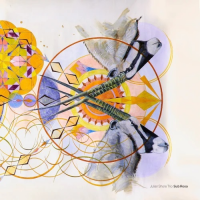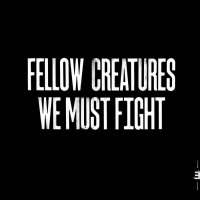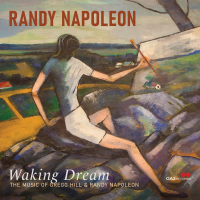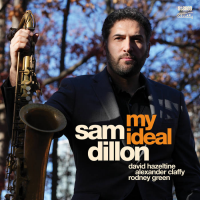Home » Jazz Articles » Extended Analysis » Gene Ludwig: Gene Ludwig: Love Notes Of Cole Porter
Gene Ludwig: Gene Ludwig: Love Notes Of Cole Porter
 Gene Ludwig
Gene LudwigLove Notes Of Cole Porter
Big O Records
2011
Nearly two years prior to his untimely death in July of 2010, Pittsburgh organist

Gene Ludwig
organ, Hammond B31937 - 2010

Cole Porter
composer / conductor1891 - 1964
When releasing an album of songs by a composer of Porter's stature, an artist risks falling victim to over-familiarity. Ludwig overcomes that risk by mixing in lesser-known songs such as "Rosalie," "Dream Dancing" and "Why Can't You Behave?." Ludwig also adds variety by changing up the personnel, with half of the album's tracks featuring Ludwig in an organ / guitar / drums setting, and the other half adding the tenor saxophone of fellow Pittsburgh stalwart Lou Stellute.
While Love Notes Of Cole Porter avoids over-familiarity, that is not to say that it eschews the songs that made Porter famous. Ludwig and company tackle such standards as "What Is This Thing Called Love," "You'd Be So Nice to Come Home To" and "Night and Day," among others.
The crack band of saxophonist Lou Stellute, guitarist

Mark Strickland
guitar
Stanley Turrentine
saxophone, tenor1934 - 2000

Grant Green
guitar1935 - 1979

Wes Montgomery
guitar1923 - 1968
Throughout this well-recorded album, Ludwig coaxes a variety of tones out of his Hammond C-3, whether driving an up-tempo number, massaging a ballad or laying down a blanket underneath one of his band mate's solos. As an example of Ludwig's comping, note his work behind Strickland on a beguiling, Latinized "Begin the Beguine," one of the album's many highlights. On "You'd Be So Nice To Come Home To," Ludwig builds up a healthy amount of steam before briefly trading lines with Stellute and Strickland. The achingly beautiful "Every Time We Say Goodbye," with Strickland carrying the melody, is made even more poignant by the knowledge that this was to be Ludwig's final album, and, as such, is a bittersweet "Goodbye."
Ludwig lends "Why Can't You Behave?" a church vibe, converting anyone who doesn't already belong to the church of melodic jazz organ. Ludwig quickly travels back in time from Sunday morning service to his own Saturday night sermon, bringing his irresistible groove to "Night And Day," a title that sums up the difference in the consecutive tracks' respective moods.
Throughout the recording, Ludwig also demonstrates a firm grasp of jazz history. On "What Is This Thing Called Love?," Ludwig deftly inserts a quote from

Tadd Dameron
piano1917 - 1965

Fats Waller
piano1904 - 1943

Jimmy Smith
organ, Hammond B31925 - 2005
Released on Valentine's Day, Love Notes Of Cole Porter serves not only as a valentine to Cole Porter from Gene Ludwig, but also as a valentine to Gene Ludwig from Pattye, his wife, who served as the album's executive producer. With Ludwig on top of his game throughout, Love Notes Of Cole Porter is a fitting farewell.
Tracks: What Is This Thing Called Love; Everything I Love; I Love You; Begin The Beguine; You'd Be So Nice to Come Home To; Every Time We Say Goodbye; Rosalie; Why Can't You Behave?; Night and Day; Dream Dancing.
Personnel: Gene Ludwig: Hammond C-3 organ; Mark Strickland: guitar; Lou Stellute: tenor saxophone (1-3, 5, 8); Thomas Wendt: drums (1, 3, 5, 7, 9); Billy Kuhn: drums (2, 4, 6, 8, 10). ">
Track Listing
What Is This Thing Called Love; Everything I Love; I Love You; Begin the Beguine; You'd Be So Nice to Come Home to; Every Time We Say Goodbye; Rosalie; Why Can't You Behave?; Night and Day; Dream Dancing
Personnel
Gene Ludwig
organ, Hammond B3Gene Ludwig: Hammond C-3 Organ; Mark Strickland: Guitar; Lou Stellute: Tenor Saxophone (1-3, 5, 8); Thomas Wendt: Drums (1, 3, 5, 7 9); Billy Kuhn: Drums (2, 4, 6, 8, 10)
Album information
Title: Gene Ludwig: Love Notes Of Cole Porter | Year Released: 2011 | Record Label: Big O Records
Tags
Comments
PREVIOUS / NEXT
Support All About Jazz
 All About Jazz has been a pillar of jazz since 1995, championing it as an art form and, more importantly, supporting the musicians who make it. Our enduring commitment has made "AAJ" one of the most culturally important websites of its kind, read by hundreds of thousands of fans, musicians and industry figures every month.
All About Jazz has been a pillar of jazz since 1995, championing it as an art form and, more importantly, supporting the musicians who make it. Our enduring commitment has made "AAJ" one of the most culturally important websites of its kind, read by hundreds of thousands of fans, musicians and industry figures every month.



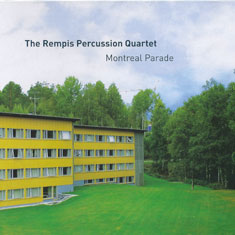




 Buy Now
Buy Now


